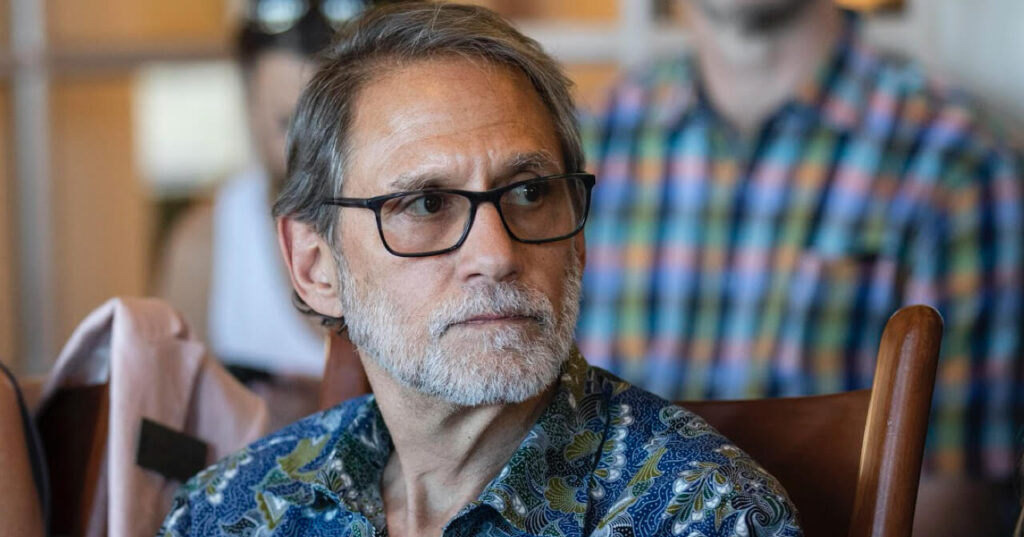Dr. Michael Fanselow: Understanding Post-Traumatic Stress and How to Treat It

People who live with anxiety disorders battle daily challenges with life-disrupting fear. An especially timely form of anxiety is post-traumatic stress. According to the NIMH, PTS afflicts almost 7% of Americans at some time in their lives, and according to a 2008 RAND study, approximately 5-15% of veterans of the Iraq and Afghanistan wars return home with PTS. Better understanding the neurobiology behind how pathological anxiety develops could help to assist those struggling with PTS and other anxiety conditions in managing their fears.
Dr. Michael Fanselow, PhD is a leader in the study of PTS and is the Staglin Family Chair in Psychology and Director of Staglin Family Music Festival Center for Brain and Behavioral Health at UCLA. Fanselow and his Center, co-directed by Michelle Craske, PhD, are working on basic research aimed at determining the neurobiological causes and possible treatments for anxiety disorders, with a focus on PTS. In the last year, the Center has made three significant discoveries that may lead to improved treatments to manage anxiety:
Discovering the Biology Beneath the Fear of Safe Places
Fear of specific places is a signature feature of anxiety disorders, and someone afflicted may overgeneralize, extending their fear of genuinely dangerous places to places that are actually safe. But why? The amygdala is a compact brain region associated with the experience of anxiety and fear. Collaborating with a team from the University of Leuven in Belgium, Dr. Fanselow’s team has discovered that the neural activity in the amygdala increases when rodents modeling anxiety overgeneralize and become afraid of safe places. The team has also found in cases of more severe initial trauma, this extension of fear to safe places grows spontaneously with time, suggesting valuable insights into the biology of how some people with PTS only develop the condition after a delay.
Finding Targets for Precision Anti-anxiety Treatments
Knowing what chemical processes occur where in the brain to cause pathological fear can point the way to invent targeted anxiety medications. The hippocampus is a part of the brain associated with memory formation. Acetylcholine is a neurotransmitter (a chemical that carries signals between brain cells), whose activity in the hippocampus has been implicated in the development of fear of specific places. With optogenetics, a means to stimulate cell activity with light, Fanselow’s team demonstrated that enhancing the activity of acetylcholine in the rodent hippocampus increased when learning to fear specific places. Then, the team further verified this effect by genetically enhancing acetylcholine reception in the hippocampus. These discoveries form important steps on the path to isolating molecular targets for the development of improved anxiety medications.
Improving Psychotherapy for Anxiety
Patients engaging in cognitive behavioral therapy for anxiety disorders undergo techniques aimed to extinguish their debilitating fears, but this therapy helps some patients better than others. How can therapeutic practice be improved? Fanselow’s team, in collaboration with the lab of Dr. Naomi Eisenberger, discovered that these sessions work even better when a familiar friend or family member accompanies the patient. This finding overturns the conventional perception that safety signals tend to obstruct fear reduction techniques, and establishes that the presence of moral support may enhance courage, and thus success, during psychotherapy for anxiety.
Based on their momentous discoveries, Fanselow’s team has earned a major RO1 grant from the National Institute for Mental Health, to examine a novel neural mechanism that may explain why women tend to develop anxiety disorders more frequently than men, and may lead to gender-specific treatments.
Dr. Fanselow and his team, through the Staglin Family Music Festival Center for Brain and Behavioral Health at UCLA, are opening doors toward enhancing patient care through a more dynamic understanding of anxiety disorders such as PTS. We at One Mind are proud to fund the Center’s research, and delighted that our donors have enabled us to do so.
